Research Area
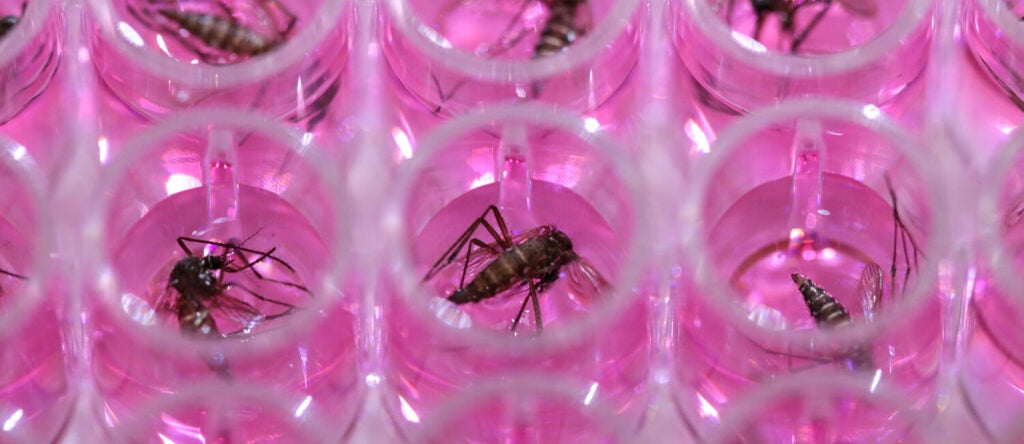
Stopping Disease Transmission at the Source
Dr. Michael Povelones considers how the chain of disease transmission could be halted before a pathogen ever leaves the mosquito vector.

A Hub for Zoonotic Disease Research (link is external)
Penn Vet’s unique new Institute for Infectious Zoonotic Diseases

Penn Vet Establishes Institute for Infectious and Zoonotic Diseases
Signaling the world’s vulnerability to disease, Penn Vet is launching the Institute for Infectious and Zoonotic Diseases to confront emerging and re-emerging zoonotic and vector-borne diseases, with a goal of…
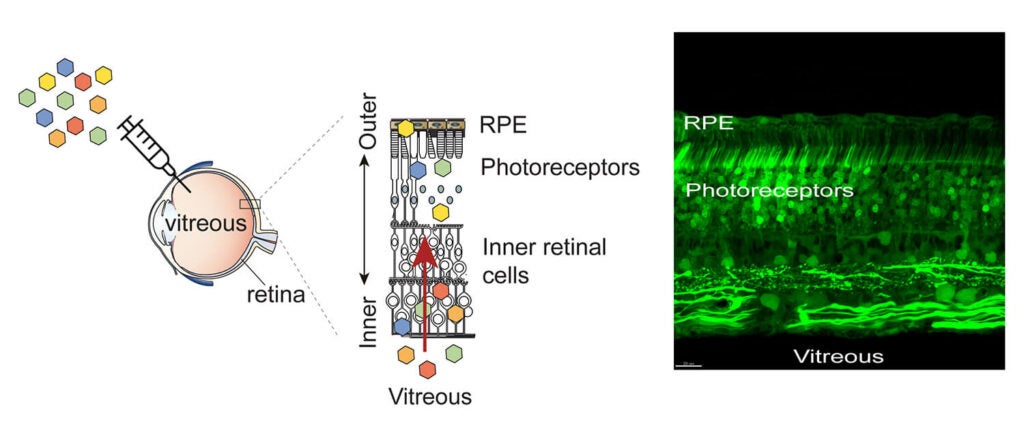
Novel gene therapy platform speeds search for ways to cure blindness (link is external)
A newly developed single-cell RNA sequencing technique enables researchers to quickly identify an optimal vector for delivering therapeutic genetic material to treat vision disorders, and perhaps other genetic conditions.

Forging healthy bonds with canine companions (link is external)
Penn Vet postdoc Lauren Powell’s research illuminates how the personalities of both dogs and their owners influence the pairs’ ability to overcome behavioral challenges.

Penn Vet Names Dr. Mark Oyama Interim Chair of Clinical Sciences and Advanced Medicine
Mark Oyama, DVM, MSCE, DACVIM, has been named Interim Chair of the Department of Clinical Sciences and Advanced Medicine (CSAM) at the University of Pennsylvania’s School of Veterinary Medicine (Penn…
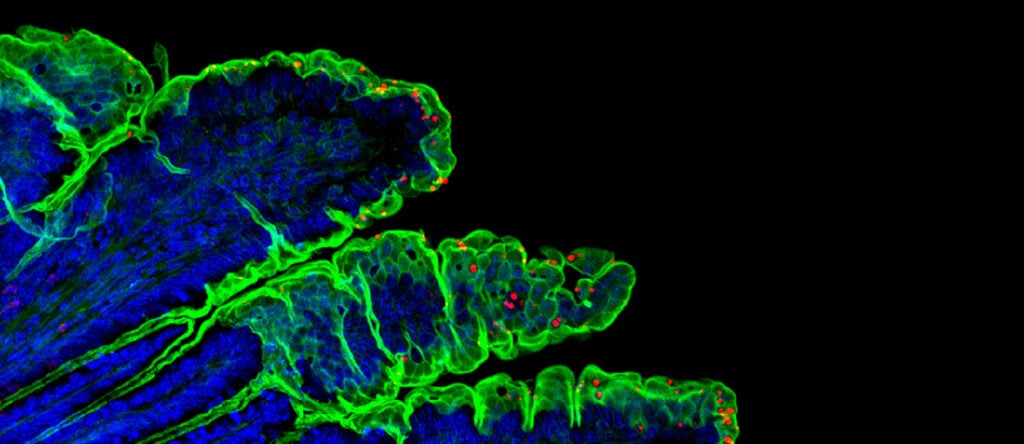
Tracking the earliest steps in parasite infection (link is external)
The parasite Cryptosporidium, a leading global cause of diarrheal diseases in children, injects host cells with a cocktail of proteins. Using powerful video microscopy, Penn Vet researchers tracked the process…

The search for the culprit behind songbird deaths (link is external)
Across the United States, songbirds are dying from a mysterious condition. Working with long-established partners, Penn Vet researchers are striving for a diagnosis.
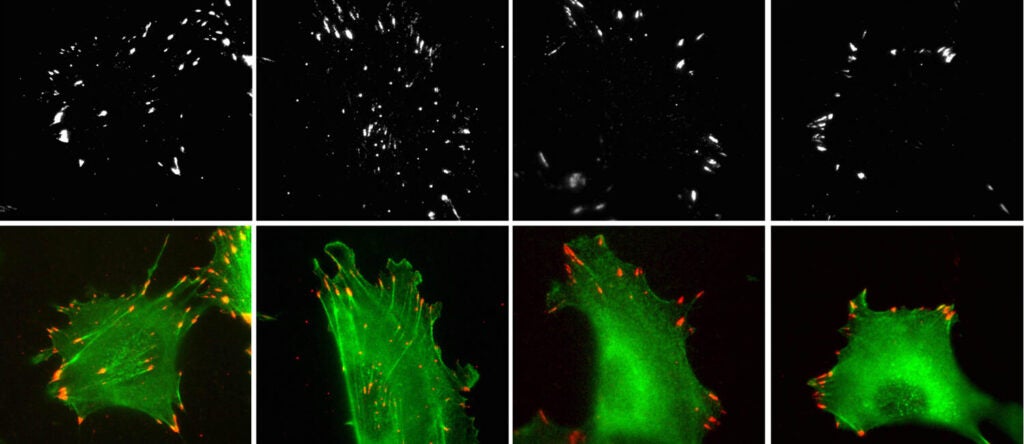
Protein’s ‘silent code’ affects how cells move (link is external)
The protein actin is ubiquitous and essential for life. In mammals, every cell expresses two of its forms, beta-actin and gamma-nonmuscle-actin. Despite having distinct roles, the two forms are nearly…
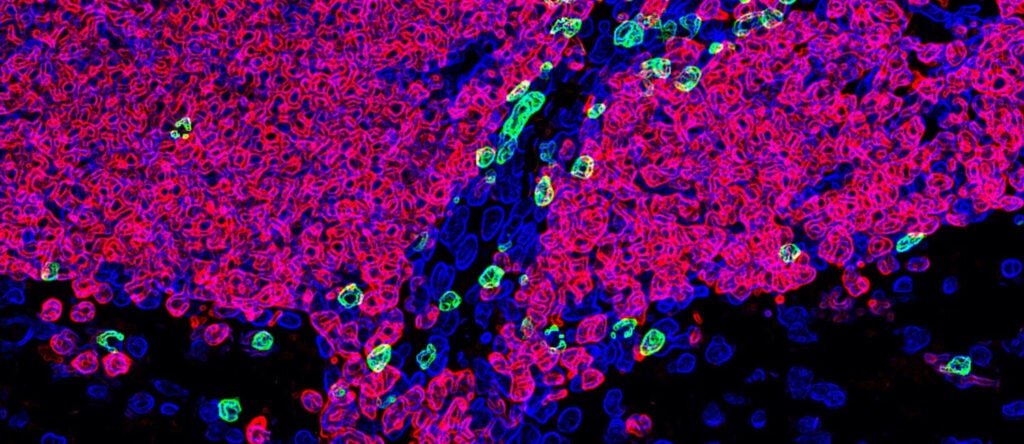
With remarkable similarities to MS, a disease in dogs opens new avenues for study (link is external)
The canine disease granulomatous meningoencephalomyelitis (GME), the most common neuroinflammatory disease that affects dogs, shares key features of its pathology and immunology with multiple sclerosis (MS), according to a new…
Sort By
- Research Laboratories (1)
- ASMG Laboratory - Microbial Genomics (2)
- Lengner Laboratory (3)
- Anguera Laboratory (4)
- New Bolton Center PADLS (2)
- Wang Laboratory (5)
- Puré Laboratory (1)
- Ortved Orthopedic Regenerative Medicine Laboratory (4)
- Wolfe Laboratory (1)
- Lennon Mucosal Immunology Laboratory (1)
- Equine Pharmacology Research Laboratory (5)
- Dou Laboratory (2)
- Harty Laboratory (3)
- Hunter Laboratory (3)
- Brinster Laboratory of Reproductive Physiology (1)
- Mason Immunotherapy Research Laboratory (3)
- Sunyer Laboratory (2)
- Scott Laboratory (1)
- Vaughan Laboratory (1)
- Sasaki Laboratory (1)
- Modzelewski Laboratory (1)
- Research Institutes (17)
- Research Programs (3)
- Research Centers (1)
